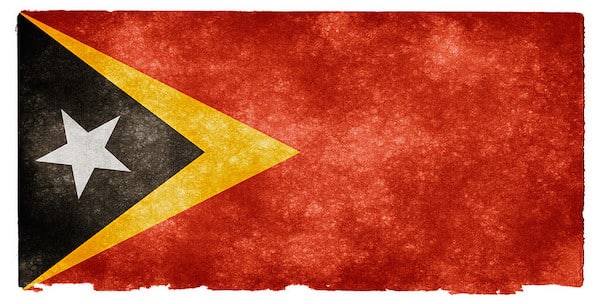by

Timor-Leste was proclaimed by the Revolutionary Front for an Independent East Timor (FRETILIN) as a sovereign state on November 28, 1975. Tragically, on December 7, Indonesia launched a large-scale military invasion backed and supplied by U.S.-led Western diplomatic, economic, and arms support. For twenty-four years, Indonesia committed one of the “greatest genocides” in the twentieth century history. During the first three years, East Timorese under the FRETILIN leadership responded with a war of resistance and popular revolution, a “most tenacious difficulty yet seen in the colonial revolution,” per Dennis Freney.
Under the leadership of Xanana Gusmão, compromise policies emerged within the national liberation front from the early 1980s until the late ’90s. In an August 1999 referendum, the Timorese people voted overwhelmingly for independence, ending twenty-four years of Indonesian neocolonial occupation. Timorese entered into a two-year transition period under UN Transitional Administration on East Timor (UNTAET) governance, which some have referred to as the “UN’s Kingdom,” pointing to recolonization by the imperialist power under the flag of the United Nations, International Monetary Fund (IMF), and World Bank. This recolonization aimed to establish what George Aditjondro described as a “global capitalist outpost” in Southeast Asia, as a top-down “neoliberal macroeconomic testing ground.”
The implementation of neoliberal in Timor-Leste is not new, but it has been radically ramped up since 2000 as a savage policy of the ruling class against the poor, not only by the IMF, World Bank, and Western imperialist states, but also with the help of local politicians.
In 1999, UN Secretary General Kofi Annan requested that the IMF collaborate with UNTAET leadership in the reconstruction of Timor-Leste. During the two-year transitional period (2000—02), the IMF acted as an advisor on budgetary and technical issues. Due to its own regulations, however, the IMF was not allowed to provide funds to nonmember countries such as Timor-Leste. The IMF mediated between the East Timor Transitional Administration, UNTAET, aid agencies, and donor countries. Instead of offering unconditional grants, the IMF sought to make Timor-Leste take out titanic loans, aimed at creating long-term debt.
Still, the IMF mission has indelibly shaped the state economic infrastructure, in terms of budget authority, revenue, taxes, and payment regulations. The Central Fiscal Authority, which is responsible for the fiscal strategy of the East Timor Transitional Administration, was created by IMF efforts and guidance. The IMF was responsible for securing the adoption of the U.S. dollar as Timorese currency, further expanding U.S. global neoliberal hegemony based on the dollar. The IMF was crucial in the Western imperialist foreign policy of subjugating East Timorese into the imperialist world system, centered in Washington.
Monthly Review for more
